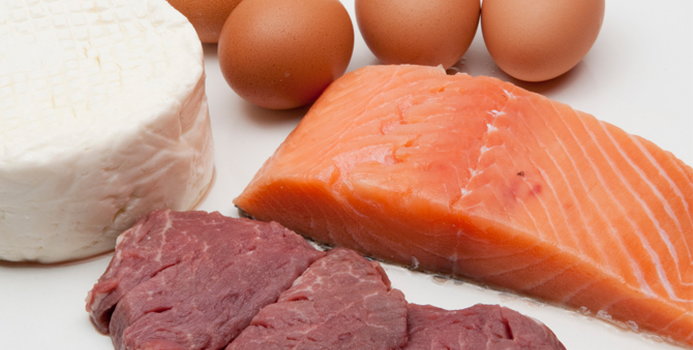Vitamin B1, also known as thiamine, is a water-soluble vitamin that is part of many important chemical reactions in your body that keep it functioning properly.
Why Is Vitamin B1 Important?
Vitamin B1 has an integral role in maintaining a healthy nervous system and is vital for muscle contraction. It is also essential for electrolyte balance as well as digestion and metabolism of carbohydrates, converting carbohydrates into energy your body can use.
Although vitamin B1 deficiency is not very common for most individuals, it is sometimes seen in chronic alcoholics. People who abuse alcohol need higher amounts than what is normally recommended for the rest of the population.
Fatigue, generalized weakness, cognitive impairment and nerve damage are common symptoms of vitamin B1 deficiency.
How Much Do You Need?
The amount of vitamin B1 (thiamine) you need is based on your gender and your age. If you're pregnant, lactating, abusing alcohol or suffering from an illness, you may need higher amounts of vitamin B1.
Based on the Recommended Dietary Allowance (RDA), the amount of vitamin B1 (thiamine) needed is as follows:
- Children ages 1-3 years: 0.5 mg per day
- Children ages 4-8 years: 0.6 mg per day
- Children ages 9-13 years: 0.9 mg per day
- Teens & Adults - Males ages 14 years and up: 1.2 mg per day
- Teens & Adults - Females ages 14-18 years: 1.0 mg per day
- Teens & Adults - Females ages 19 years and up: 1.1 mg per day
- Pregnant & Lactating Females: 1.4 mg per day
Best Food Sources for Vitamin B1 (Thiamine)
1. Fish
Yellowfin and albacore tuna (cooked), 2.5 ounces: 0.38 mg thiamine
Trout (cooked), 2.5 ounces: 0.11 - 0.32 mg thiamine
Salmon, walleye, mussels (cooked), 2 1/2 ounces: 0.21 - 0.26 mg thiamine
2. Pork
Choose lean sources of pork, such as pork loin or tenderloin. A 3-ounce serving is approximately the size of a deck of playing cards.
Pork loin/tenderloin (roasted), 3 ounces: 0.81 mg thiamine
3. Legumes
Legumes include beans, peas, lentils, and peanuts.
Beans (cooked), 3/4 cup: 0.18 - 0.32 mg thiamine
Lentils (boiled), 1/2 cup: 0.17 mg thiamine
Peas (cooked), 1/2 cup: 0.21 mg thiamine
4. Milk
Choose skim or 1% milk, which also provides calcium, vitamin D, and protein.
Milk, 1 cup: 0.10 mg thiamine
5. Eggs
Eggs are a nutritious breakfast staple, and you can easily add veggies to your eggs to amp up the fiber and antioxidant content. Although the amount of vitamin B1 in one egg doesn't seem like much, chances are most people consume more than one egg at a time.
Egg, 1 large (cooked): 0.03 mg
6. Nuts & Seeds
Nuts, 1 ounce (about 1/4 cup): 0.12 - 0.26 mg thiamine
Sunflower seeds without shell, 1/4 cup: 0.54 mg thiamine
7. Brewer's Yeast
Brewer's yeast, 2 Tbsp: 1.2 mg thiamine
8. Whole-Grain & Enriched Grain Products
Whole-wheat bread, 1 slice: 0.10 mg thiamine
White bread, enriched, 1 slice: 0.23 mg thiamine
Fortified breakfast cereal (puffed wheat), 1 cup: 0.31 mg thiamine
Wheat germ breakfast cereal, 1 cup: 1.88 mg thiamine
Oatmeal (cooked), 3/4 cup: 0.21 mg thiamine
9. Rice
Brown rice and wild rice are naturally rich in vitamin B1, but most of it is stripped when it's refined to make white rice. However, vitamin B1 is added back into enriched white rice.
Long-grain brown rice (cooked), 1 cup: 0.19 mg thiamine
Long-grain enriched white rice (cooked), 1 cup: 0.26 mg thiamine
Other Sources
- Spinach (cooked), 1/2 cup: 0.09 mg thiamine
- Orange, 1 medium: 0.11 mg thiamine
- Cantaloupe, 1/2 medium: 0.11 mg thiamine
- Edamame (cooked), 1/2 cup: 0.25 mg thiamine
A Final Note
Do you want to make sure you're getting the daily requirements of vitamin B1 (thiamine)? Eating a well-balanced diet that includes an assortment of foods from all of the food groups will ensure you don't fall short on this essential nutrient.
Kari Hartel, RD, LD is a Registered, Licensed Dietitian and freelance writer based out of St. Louis, MO. Kari is passionate about nutrition education and the prevention of chronic disease through a healthy diet and active lifestyle. Kari holds a Bachelor of Science in Dietetics from Southeast Missouri State University and is committed to helping people lead healthy lives. She completed a yearlong dietetic internship at OSF St. Francis Medical Center in Peoria, IL, where she worked with a multitude of clients and patients with complicated diagnoses. She planned, marketed, and implemented nutrition education programs and cooking demonstrations for the general public as well as for special populations, including patients with cancer, heart disease, diabetes, Alzheimer's disease, obesity, and school-aged children.




